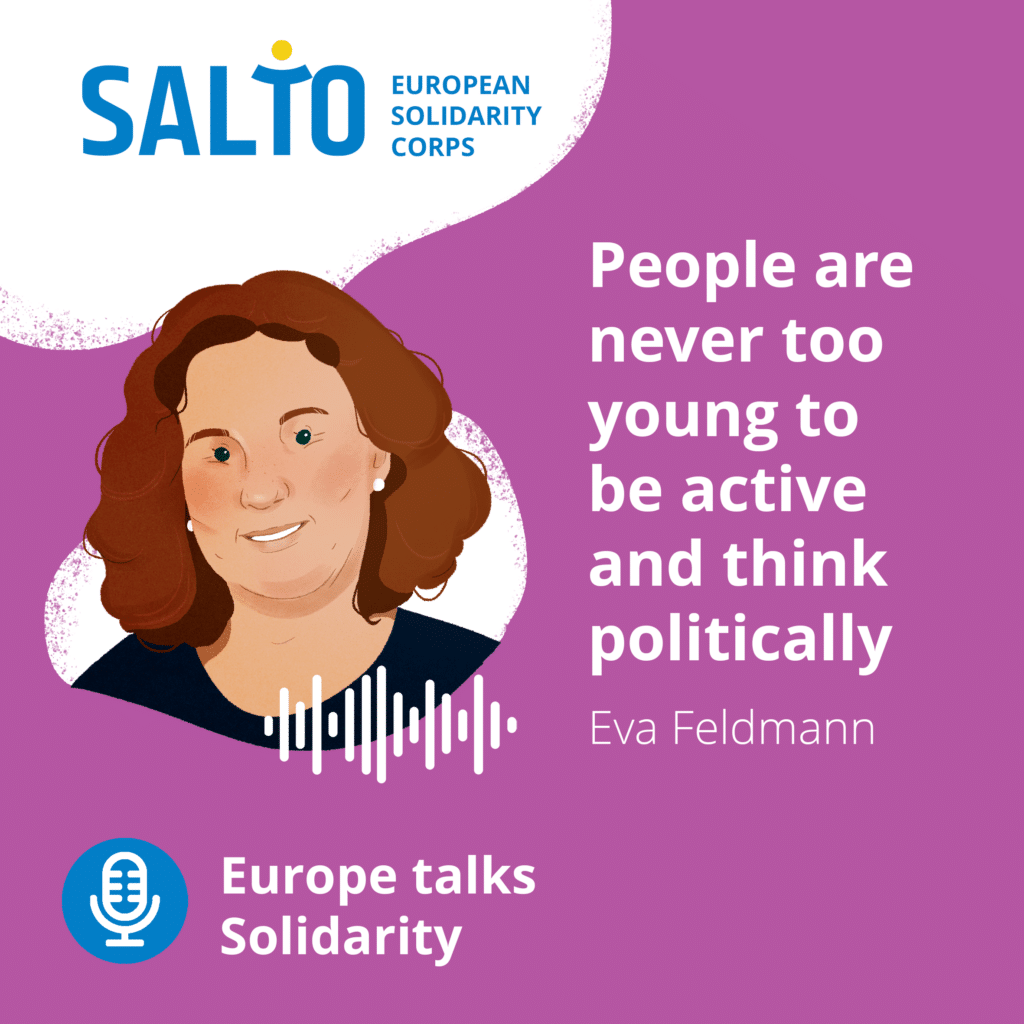
People are never too young to be active and think politically
What are the most important ingredients for young people to get involved in solidarity projects? To kick off Season 4, we invited Eva Feldmann, Director of the Youth and Europe Research Group at the Centre for Applied Policy Research at the Ludwig-Maximilian University in Munich, to discuss the results of research on young people’s participation in European solidarity projects and how such research can stimulate changes in policy-making.

